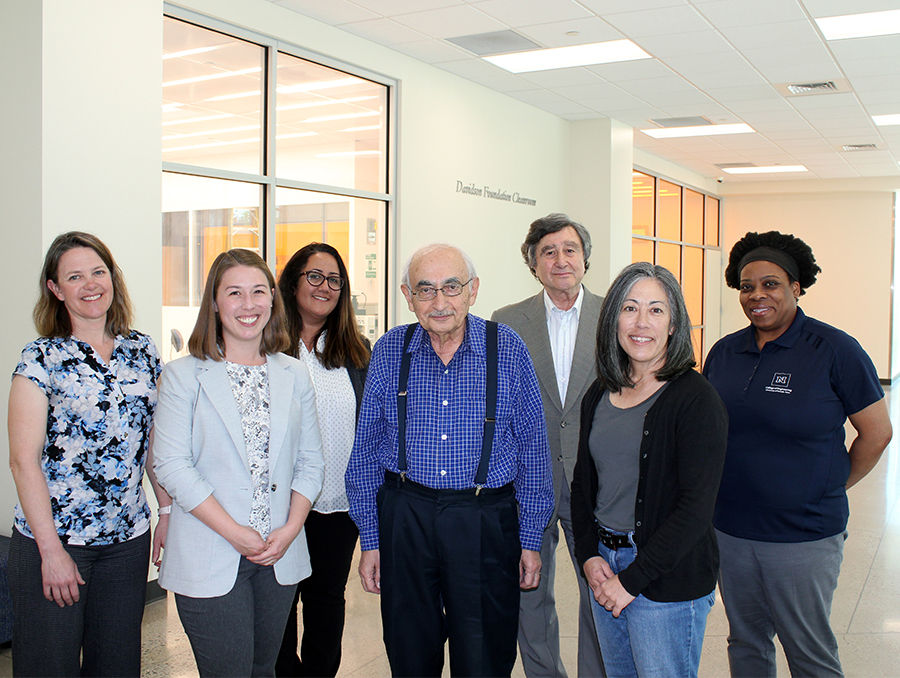Milton Glick:(Note to readers: Text is from a Campus Announcement from President Milt Glick)
Dear Colleagues:
Last week the Board of Regents reviewed the outcome of the 74th session of the Nevada State Legislature. I would like to take this opportunity to share information provided to the Regents and thoughts about what this means for our University, particularly from the budgetary perspective.
The team representing the Nevada System of Higher Education (NSHE) at the legislature did an excellent job explaining the confluence of events that made this one of the more challenging sessions regarding funding for higher education. I commend the members of both the Assembly and Senate for listening to what we had to say, and finding a workable middle ground in the state budget for higher education. In addition, Gov. Jim Gibbons showed his support for higher education by building into his budget many important enhancements in capital projects for our campus, as well as cost of living, merit and longevity adjustments for our employees. On this point, Merit pool was funded at the full 2.5 percent. Cost of living increases for University employees was approved at 2 percent in the first year of the biennium and 4 percent in the second year.
Projected $4 million funding shortfall: Over the past two years, student enrollment has increased, but not at the levels that had been projected. Because the funding formula is based on enrollment, this lower-than-projected rate of growth negatively impacts the budget. Couple this with the news that state revenues had taken an unexpected downturn, and a funding shortfall is unavoidable although the legislature and the governor did ameliorate this.
As a result of this, the University is looking at a long-term funding imbalance of about $4 million per year of the biennium, which is less than what had been projected in mid-April when I testified in front of the Senate Finance and Assembly Ways and Means Joint Higher Education Subcommittee.
The shortfall breaks down in round numbers this way:
$2 million shortfall in formula funding due to lower-than-projected enrollment.
$1 million under-collection of out-of-state fees related to the Western Undergraduate Exchange (WUE) program.
$1 million to bring NSHE into compliance with a letter of intent from the 2005 legislative session regarding how much of the system's tuition and fee revenue would be used to offset the state general fund.
Continuing structural budget deficit: In addition to the $4 million shortfall, we face a continuing $2 million structural budget deficit. The past practice has been to "sweep" savings from open positions to fund part-time and temporary instructors. In some years open positions were selectively held open to provide additional savings to close the budgetary gap. We are working on new budgetary mechanisms to avoid this in the future.
Meeting this funding challenge: We intend to close this funding gap in a manner that protects student access, student success and other core activities of the University. Our strategy for savings in the coming year includes:
$700,000 base reduction in reserves that would have been allocated for new faculty and equipment.
$300,000 base reduction through elimination of the Institute for Innovation and Informatics.
$400,000 base reduction in Extended Studies.
$400,000 base reduction that has been spread across the campus and communicated to impacted departments.
A $1 million reduction in our $2 million student-fee commitment to bring NSHE into compliance with a letter of intent from the 2005 legislative session. It should be noted that the University remains committed to provide budgetary support for the Joe Crowley Student Union opening this fall, and we will work with our students on this matter.
This leaves us with a continuing need of about $2 to 2.5 million to be dealt with through longer-term budget reductions or increased revenue over the next several years. In the coming months, we will develop a strategy that accomplishes this. I can assure you that we will not make budget reductions that would be deeply harmful to our students and our academic mission.
Our preeminent goal shall always be student success, and with it, the creation of a "culture of completion" for our campus while enhancing our research mission. When, in a few years, our students cross the stage for Commencement with hardly a memory of this challenging time, then I would say that we did this job right, we did it as equitably as we possibly could, and we did it with their futures in mind.
As always, please feel free to contact me at glick@unr.edu if you have any further thoughts about this issue.
Sincerely,
Milton D. Glick











